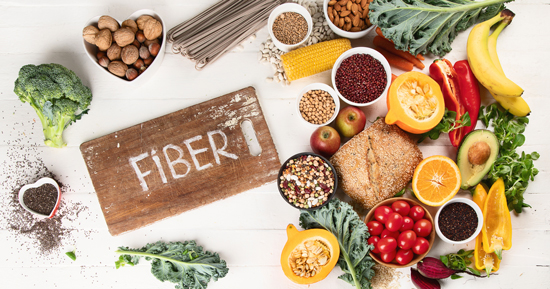
Fiber is an essential component of a healthy diet, yet it is often overlooked. It is a type of carbohydrate that the body cannot digest or absorb, passing through the digestive system relatively intact. Despite this, fiber plays a crucial role in maintaining good health. In this article, we will explore the importance of fiber in your daily diet and how it contributes to overall well-being.
1. Promotes Digestive Health:
One of the primary benefits of fiber is its ability to promote a healthy digestive system. It adds bulk to the stool, facilitating regular bowel movements and preventing constipation. Fiber also helps prevent other digestive issues such as diverticulitis and hemorrhoids. By keeping the digestive system running smoothly, fiber supports optimal gut health.
2. Weight Management:
Fiber-rich foods are often more filling and satisfying than low-fiber options. Including fiber in your meals and snacks can help control appetite and prevent overeating. High-fiber foods tend to be lower in calories and take longer to chew, allowing your body to register fullness. By adding bulk to your meals without adding excess calories, fiber can support weight management and healthy eating habits.
3. Blood Sugar Control:
Fiber can help regulate blood sugar levels. Soluble fiber, found in foods like oats, beans, and fruits, forms a gel-like substance in the digestive tract, which slows down the absorption of sugar into the bloodstream. This can help prevent blood sugar spikes and contribute to better glycemic control, particularly important for individuals with diabetes or those at risk of developing the condition.
4. Heart Health:
A high-fiber diet is associated with a reduced risk of heart disease. Soluble fiber helps lower LDL (bad) cholesterol levels by binding to cholesterol in the digestive system, preventing its absorption. By reducing LDL cholesterol, fiber helps maintain healthy blood lipid profiles and decreases the risk of cardiovascular problems, including heart attacks and strokes.
5. Maintenance of Healthy Weight:
Fiber-rich foods often require more chewing, which slows down the eating process. This increased chewing time gives your body more time to register fullness, helping prevent overeating. Additionally, high-fiber foods tend to be less energy-dense, meaning they have fewer calories for the same volume compared to low-fiber options. By including fiber in your diet, you can feel satisfied while managing your calorie intake, which is crucial for weight maintenance and healthy weight loss.
6. Gut Microbiome Health:
The gut microbiome, a collection of microorganisms in your digestive tract, plays a vital role in various aspects of health, including digestion, immune function, and mental well-being. Fiber acts as a prebiotic, serving as food for beneficial gut bacteria. By nourishing these bacteria, fiber promotes a healthy and diverse gut microbiome, which is associated with improved overall health and reduced risk of certain diseases.
Fiber is an often-neglected nutrient that plays a crucial role in maintaining good health. From promoting digestive health and weight management to controlling blood sugar levels and supporting heart health, fiber offers a wide range of benefits. To increase your fiber intake, include a variety of whole grains, fruits, vegetables, legumes, and nuts in your daily diet. Aim for the recommended daily intake of fiber, which is around 25 grams for women and 38 grams for men. By prioritizing fiber-rich foods, you can support your overall well-being and enjoy the numerous advantages that fiber brings to your diet and health.
